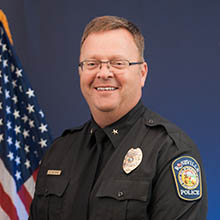
Last Saturday I was afforded the opportunity to attend the second discussion of an ongoing dialogue fostered by Do Good Roseville entitled, “Ask a Black Man, Part 2-the Black and White Conversation.” This discussion included three black men along with three white men who talked about their experiences in life.
A great amount of the discussion focused on “white privilege”; a term that may have just piqued your interest or sent you over the edge. I find people have polar opposite opinions of this term as I researched various websites to include in the newsletter to offer a definition. In one article, Washington Post author Christine Emba asks, “What is white privilege? It’s the level of societal advantage that comes with being seen as the norm in America, automatically conferred irrespective of wealth, gender or other factors. It makes life smoother, but it’s something you would barely notice unless it were suddenly taken away — or unless it had never applied to you in the first place.”
I have publicly said there are disparate outcomes in the legal system based on race. I don’t think anyone needs to research very long to find this out from multiple sources of your own choosing. It’s a fact that more black men are in our state prisons than white males based on their population numbers in America.
A question I find myself asking is does “white privilege” have anything to do with that fact?
I do believe that economic privilege is prevalent in our society and those with a higher level of income are able to afford better food, homes, health care, psychological care, etc. Growing up, I learned the message; work hard and you will reap the benefits. Parents regularly pass along their accumulated wealth to their children and give them advantages in life over those who were not blessed with wealthier families.
Members of the panel definitely felt that white privilege was evident in our society and affected their lives. Many of those attending the conversation said the same. Do you agree?
Thinking about this subject brought me back to an experience I had a few months ago while off-duty. I was picking up dinner at a local restaurant that my family has dined at several times. As I walked in I observed a middle-aged, black female already at the register paying for her takeout order. She paid with a credit card and the young cashier, a white female, asked for her identification. The customer produced her ID and the transaction was completed. I approached
the same cashier ready to provide my MN driver’s license as I anticipated that would happen. It did not and I only gave her my credit card.
I wondered why she didn’t ask for my ID. Was it because the black female’s credit card read, “Ask for ID,” as some people write on the back and mine did not? Was this the first time she made a purchase at the restaurant and my card had been used several times before? Or, was this an example of white privilege? Where you stand on the issue of white privilege probably led you to the answer very quickly. How would the other person waiting in the lobby for her order
have felt if she had overheard the conversations? Did three people interpret the same scenario the same way, or three different ways?
The conversation last Saturday was recorded and “Ask a Black Man, Part 2-the Black and White Conversation,” is available on CTV15. I encourage everyone to watch the three-hour conversation.
This post was originally published as part of the May 26, 2017 edition of Chief Mathwig’s newsletter, One Chief’s Perspective.